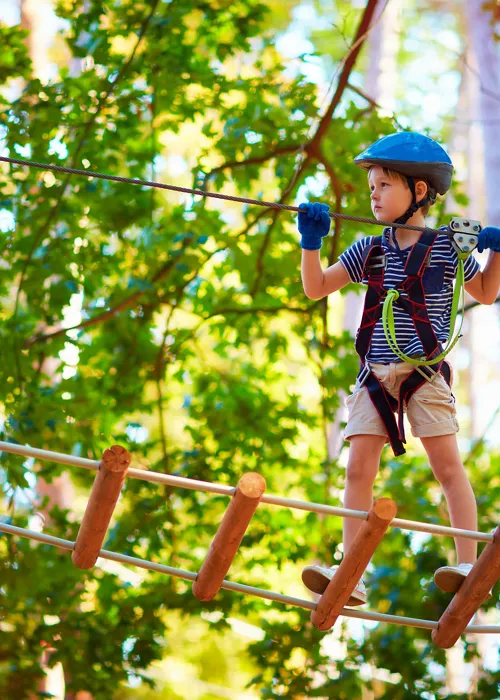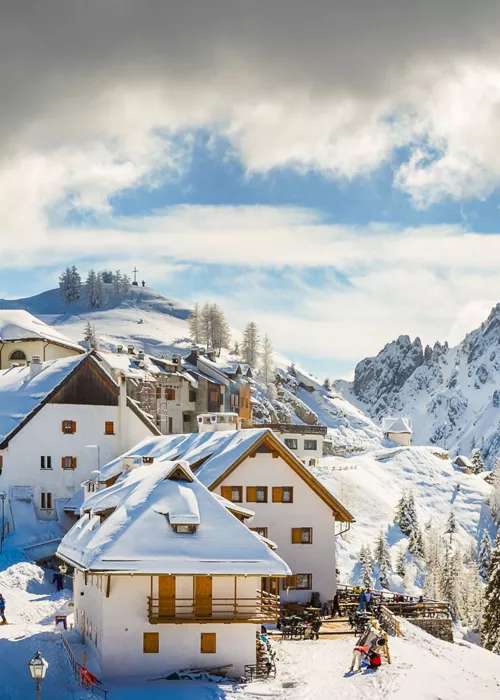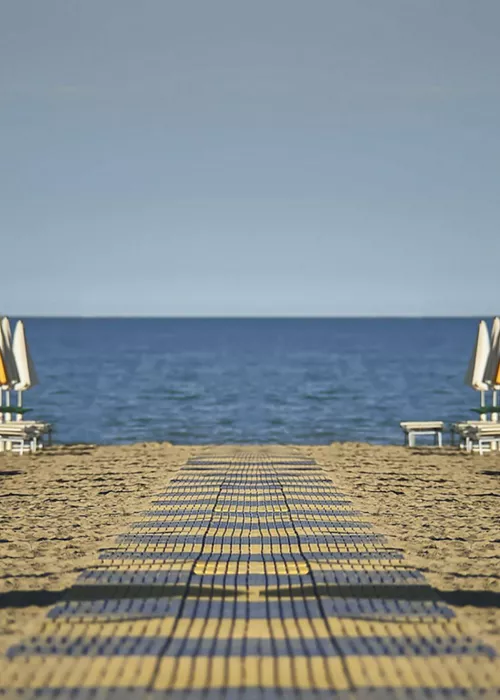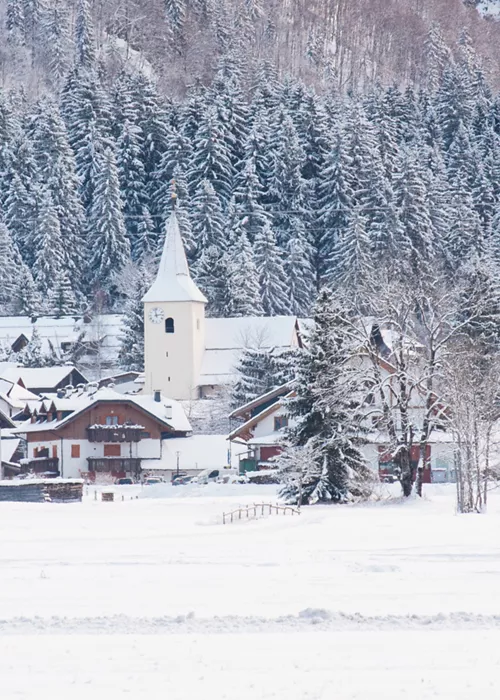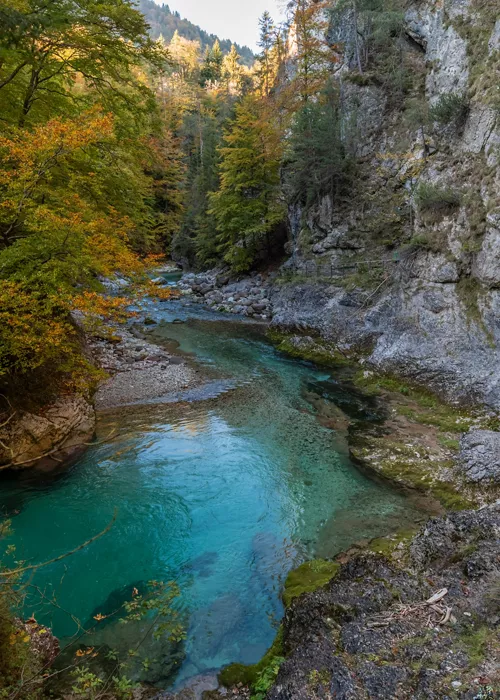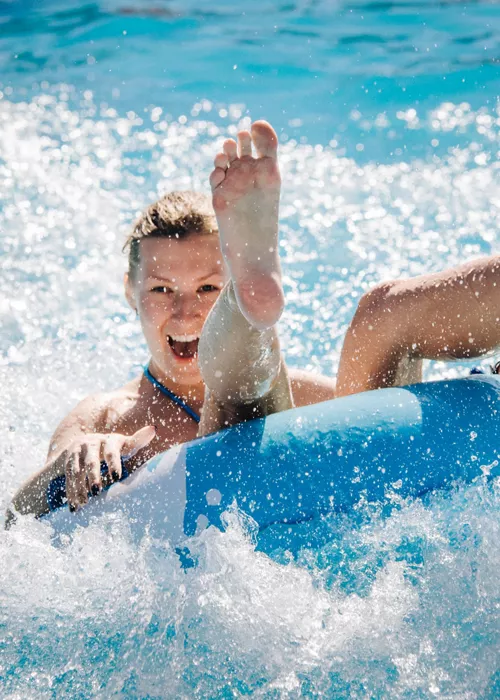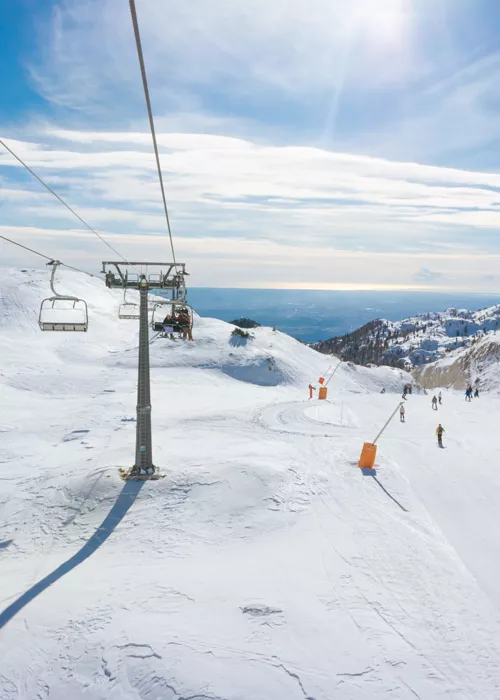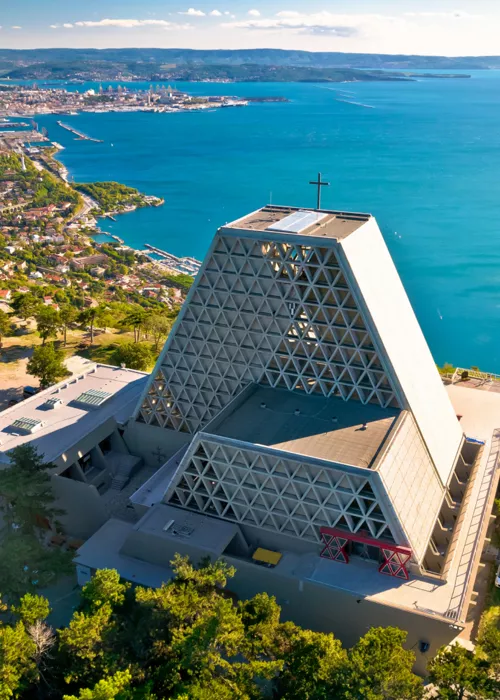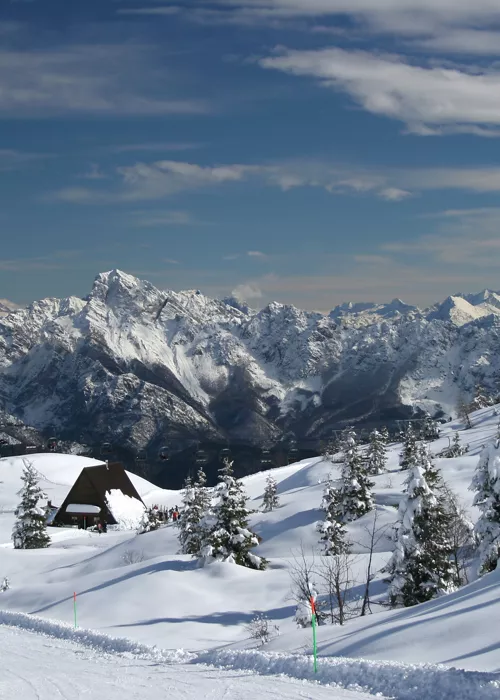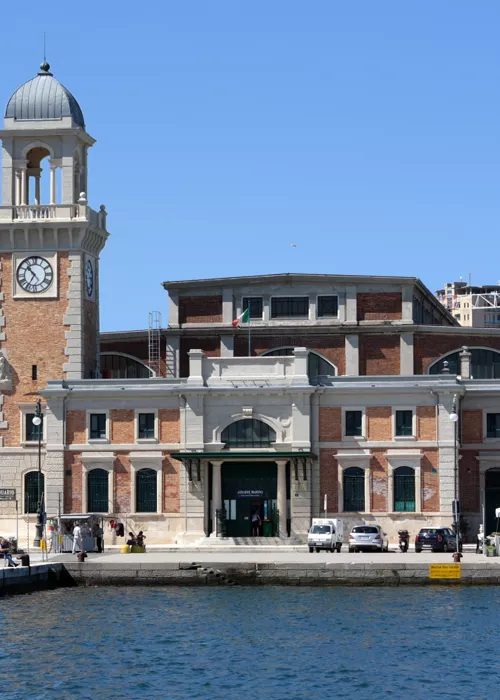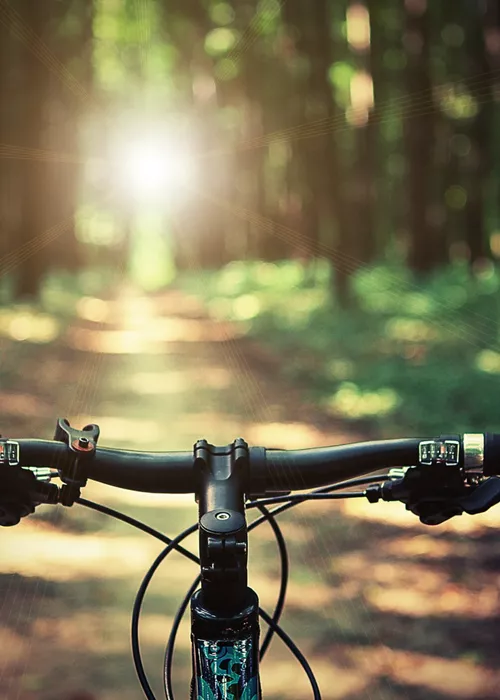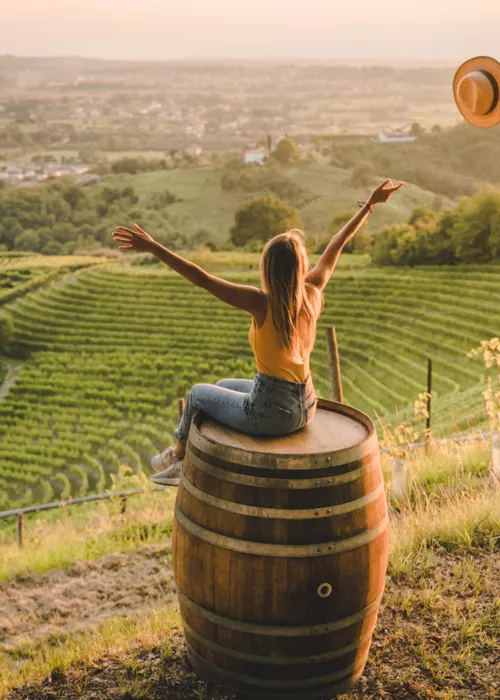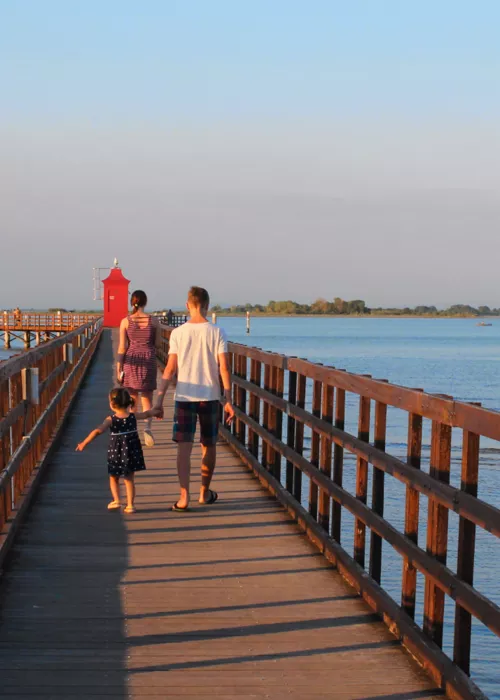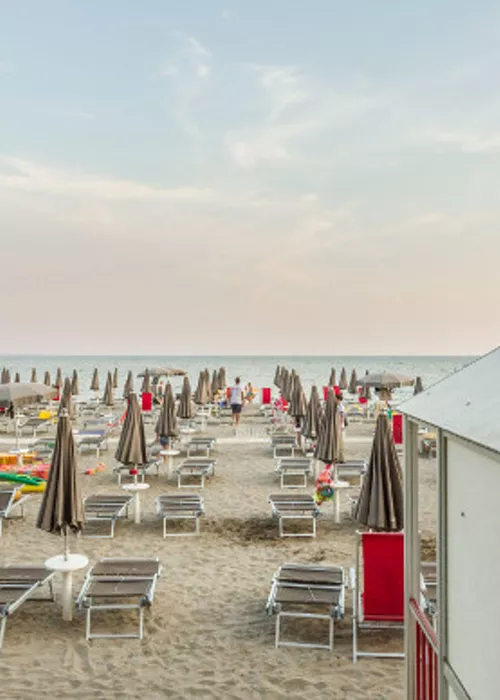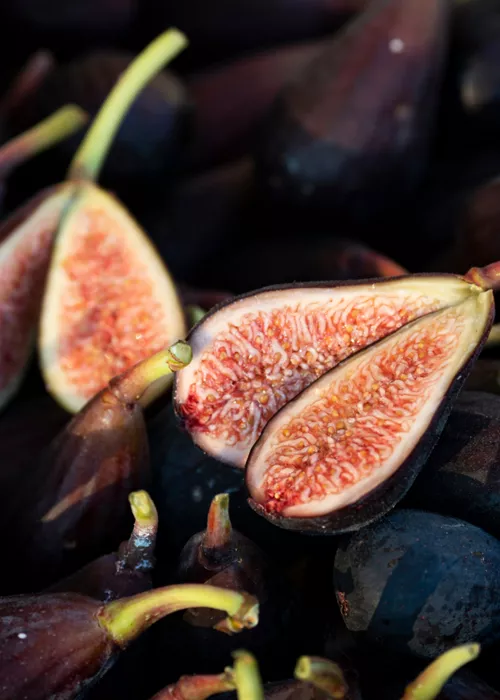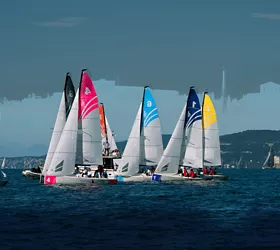Active holidays
4 minutes
Whether you love speed or slow rhythms, whether you are contemplative or reckless, it will be easy to practise your favourite activity in the nature of Friuli - Venezia Giulia. Countless types of landscapes and natural environments await you for walking or cycling, flying or sailing, with one great advantage: the possibility of quickly changing scenery and activities, because in just over 100 km, Friuli Venezia Giulia offers daring peaks and tranquil lagoons, spectacular caves and silent woods. There is no shortage of major sporting events either, such as the Barcolana, the famous regatta that fills the Gulf of Trieste with sails every October, or the many skiing events set against the spectacular backdrop of Mount Lussari, or the cycling races on Mount Zoncolan, a stage in many editions of the Giro d'Italia.
On foot and by bike
For those who love nature and choose to explore it on foot, there are countless trails covering the entire region and suited to all preferences. Among the structured itineraries, the Alpe Adria Trail is the most symbolic: a 750 km long walk, divided into 43 stages, which crosses Austria, Slovenia and Friuli Venezia Giulia and unites their respective cultures, languages and traditions. Along the way, you can discover extraordinary landscapes and views, visit enchanting places and villages, learn about local customs and traditions, and taste local delicacies. The Italian section winds through the fascinating and mysterious Natisone Valleys, the Collio vineyards and the Karst plateau, finally arriving at the picturesque port of Muggia on the Adriatic Sea.
Other shorter routes cross the Friulian Dolomites, the Carnic Alps and areas bearing witness to the Great War, and many can be customised according to your level of fitness. In addition to appropriate signage along the routes, maps and descriptions are available to hikers, as well as the option of being accompanied by a nature guide.
Cycle paths, cycle routes, mountain bike trails and gravel trails cater to all cycling enthusiasts, who can also count on a selection of accommodation facilities offering specific services for cyclists. Here too, the most famous route is cross-border: the award-winning Alpe Adria cycle route, which connects Salzburg to Grado. The Adriatic Sea cycle route is also part of a longer European route, connecting Venice with Trieste on the Italian side, passing through the seaside resorts of Friuli Venezia Giulia, the lower Friuli plain and the nature reserves of the Grado and Marano lagoons. During the summer, the cycle route can be alternated with boat trips, allowing you to appreciate the lagoon environment up close and enjoy the view from the sea. In addition to the cycle routes, there are other shorter, linear or circular itineraries that can be completed in a day, as well as many other options: for families, for super-fit sports enthusiasts, through villages and UNESCO sites, along the waterways between lakes, rivers, irrigation ditches and mills.
Extreme sports, in the air and on the water
Canyoning and climbing, hang gliding and paragliding, rafting and canoeing, windsurfing and kitesurfing: here, every gorge, mountain and watercourse represents an opportunity for discovery and adventure.
Friuli Venezia Giulia is one of the regions with the highest concentration of gorges in an alpine environment: due to their morphology and, above all, their limestone nature, its mountains are carved out by rain, forming the wildest canyoning routes in Italy in terms of length and environmental characteristics. The Pordenone valleys, the Friulian Dolomites, Carnia and Tarvisiano offer enthusiasts gorges of varying difficulty, from easy ones, suitable even for people who have never practised this activity, to challenging ones, reserved for those who already have a minimum of experience. Although mountaineering skills are not necessary to practise this sport, it is always a good idea to be accompanied by a guide along the route: this is the best way to discover the most beautiful spots and ensure your safety. The service provided by regional mountain guides also includes specific equipment.
For climbing, you can choose between classic climbs, high-difficulty climbs, modern routes and sports routes ranging from the peaks of the Dolomites to the cliffs overlooking the sea at Duino, passing through the Julian Alps and the Rosandra Valley in the Karst. The many routes allow you to discover enchanting landscapes such as the bell tower of Val Montanaia with its 300-metre spire, or the cliffs and suspension bridge of Clap Varmost, or the picturesque villages of Erto and Casso with their famous cliffs, a destination for climbing enthusiasts.
Easier and slower-paced are the canoeing and kayaking options on lakes, along rivers or the coast, or even within nature reserves. There is also a soft version of rafting, which combines sport and the right dose of adrenaline with a naturalistic and scenic component. The protagonist in this case is the Tagliamento River: due to its ecological integrity, it is considered the last great “natural” river in Europe and is probably the most beautiful river many of you have ever seen. Numerous water channels flow and intertwine in its wide riverbed, producing a spectacular view.
Air sports include parachuting, kitesurfing, free flight and tandem flight, paragliding and hang gliding: a flight through the skies of Friuli Venezia Giulia will allow you to admire a landscape that stretches from the Alpine peaks to the sea, flying over countryside, rivers and cities.
Rejuvenate yourself

Nature is the ideal setting for walking independently, but also for organised activities that help the body and mind to reconnect and experience moments of true relaxation.
The Natisone Valleys or the thousand-year-old forest of Tarvisio are perfect places to practise yoga and forest bathing: in addition to the natural beauty of these places, you can also count on the help of the Bora, the prevailing north-easterly wind, which brings clean air and removes atmospheric pollution.
In Val Tramontina, on the other hand, you can enjoy gong baths: the vibrations generated by these instruments produce frequencies that spread through the tissues and organs, creating a deep state of relaxation and well-being.






